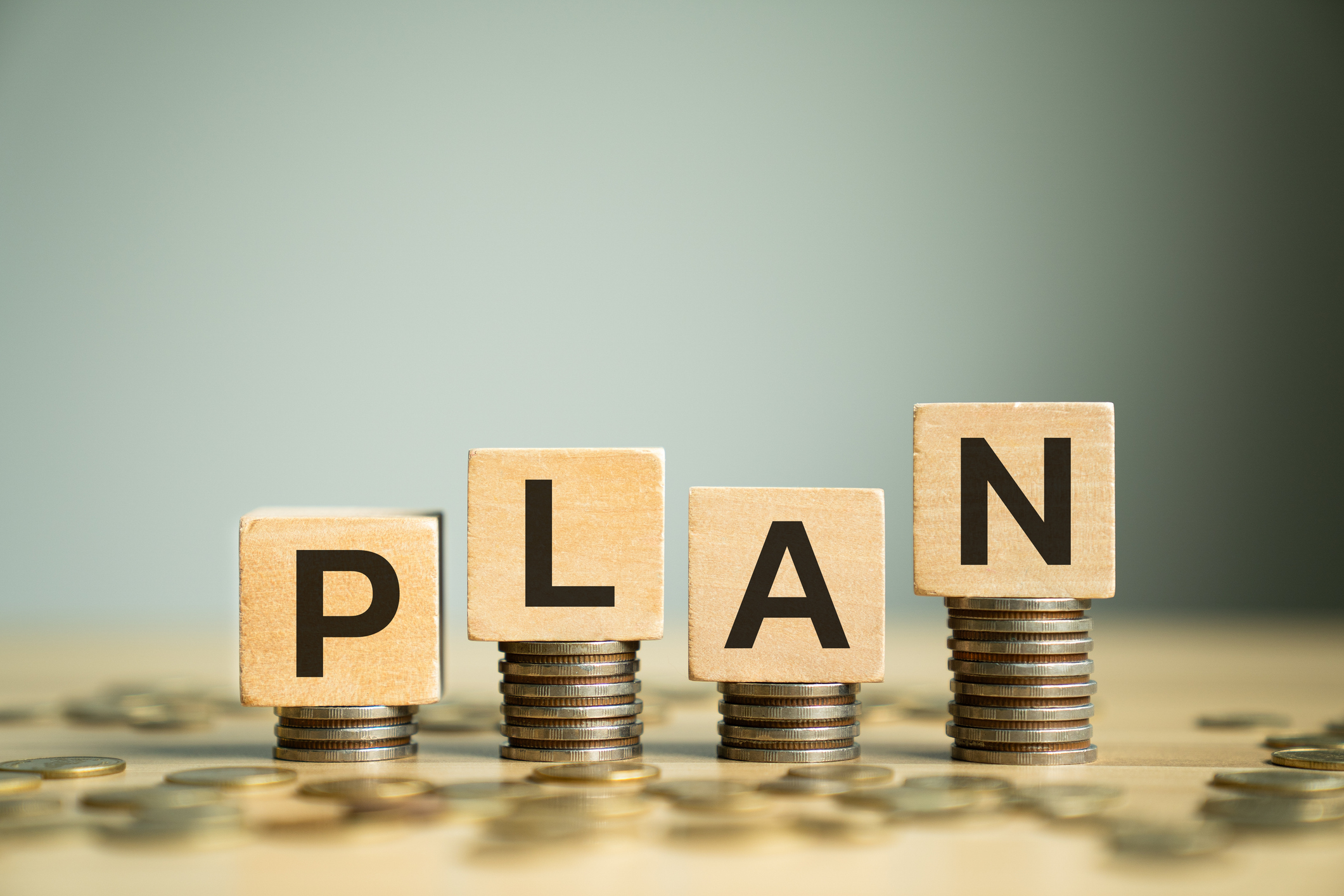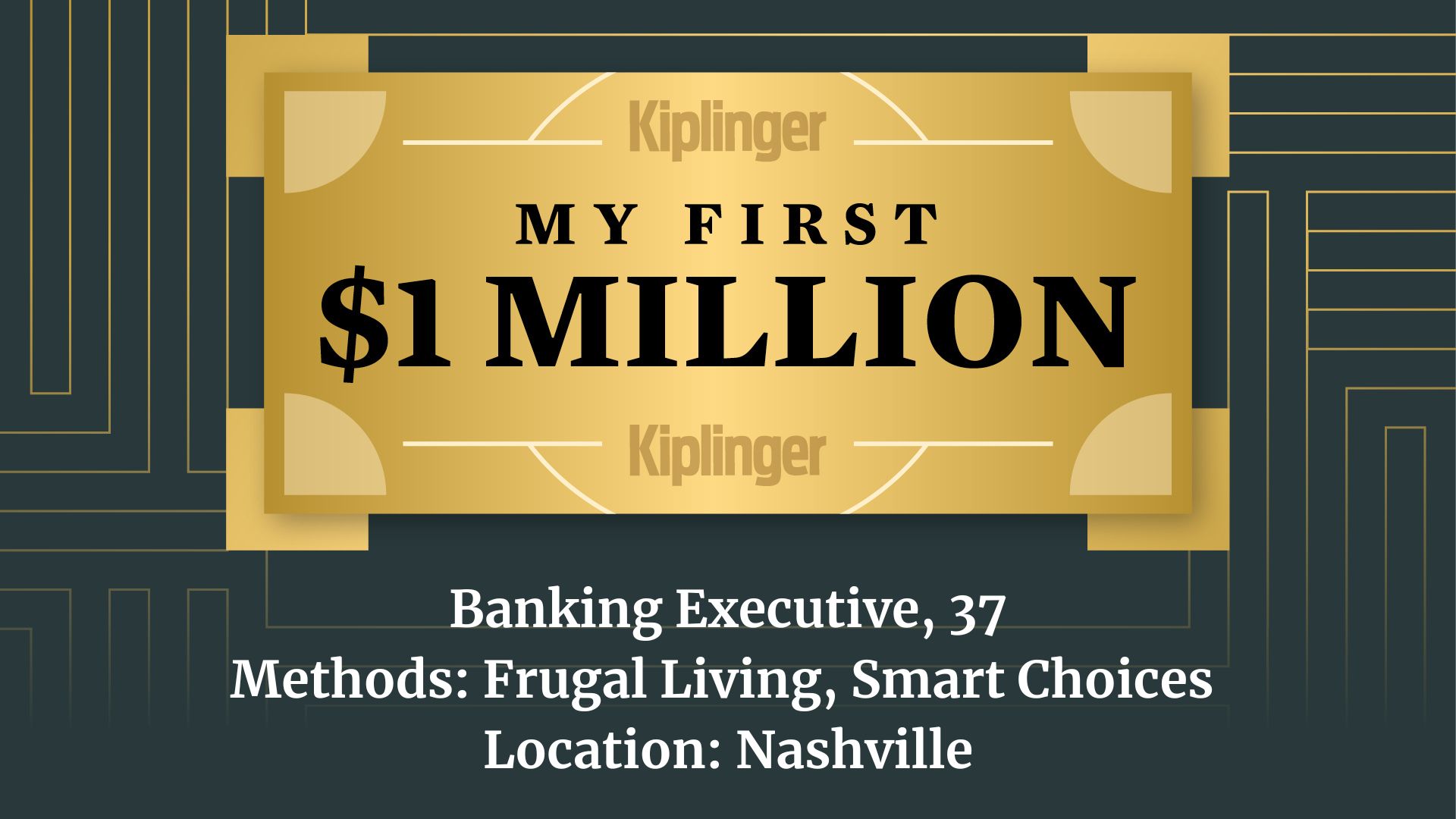Where to Store Your Cash in 2025
If you're looking to reach year-end savings goals, here are the top picks to achieve this.

Profit and prosper with the best of Kiplinger's advice on investing, taxes, retirement, personal finance and much more. Delivered daily. Enter your email in the box and click Sign Me Up.
You are now subscribed
Your newsletter sign-up was successful
Want to add more newsletters?
The Federal Reserve cut rates for the first time this year. Based on weak job numbers, the Fed decided to cut the federal funds rate by 25 basis points in an effort to stimulate job growth through lower borrowing costs for companies.
When this happens, it can impact the earnings you'll receive from savings accounts as cuts lower APYs. However, because the Fed hadn't cut rates until now, rates remain high.
And while that will change soon, it doesn't mean you still can't earn a healthy return to outpace inflation. If you have any short-term or year-end goals you want to reach, here are smart places to park your cash.
From just $107.88 $24.99 for Kiplinger Personal Finance
Become a smarter, better informed investor. Subscribe from just $107.88 $24.99, plus get up to 4 Special Issues

Sign up for Kiplinger’s Free Newsletters
Profit and prosper with the best of expert advice on investing, taxes, retirement, personal finance and more - straight to your e-mail.
Profit and prosper with the best of expert advice - straight to your e-mail.
Start with a fresh budgeting perspective
Let's start with the basics: In order to have cash to save, you need to not spend all your money. Budgeting apps can be useful tools to help make sense of how you’re spending money and if you’re reaching your savings goals.
Here are a few of Kiplinger's favorites:
- Quicken’s Simplifi: Creates a personalized spending plan to monitor where your money goes. If behaviors change, such as holiday spending or travel increases costs, it allows you to tweak your budget to ensure you're meeting savings goals. Quicken also released LifeHub, a digital document storage platform that allows you to secure your most important documents digitally.
- Empower: A helpful app that tracks spending alongside investments. It also allows you to see college savings accounts, mortgages and health savings accounts, giving a fuller view of your finances in one place.
For more options, see our roundup of the best budgeting apps.
Build wealth with a high-yield savings account
A high-yield savings account is an effortless way to save money. I use one and receive a significantly higher interest rate relative to what brick-and-mortar banks offer.
There are plenty of savings accounts where you can earn over 4%. While the recent Fed cut will dip APYs somewhat, you'll still earn a rate outpacing inflation.
Use our tools from Bankrate to find the best fit for you:
For more options, see Kiplinger's roundup of the best high-yield savings accounts.
Along with higher rates, high-yield savings accounts come with other benefits. You’ll receive financial protection by way of the FDIC for banks and the NCUA for credit unions, offering up to $250,000 to cover assets in case the financial institution fails. And you have easy access to your money whenever you need it.
On the other hand, high-yield savings accounts could require a minimum balance, and falling short on the minimum may result in higher monthly fees, negating any interest earned on the account. Rates on these savings accounts are also variable, meaning if the Fed decides to cut rates again this year, you won't earn as much on them.
Set savings goals with CDs
To get around the variable rate concern of high-yield savings accounts, look at another savings option: A certificate of deposit.
This form of investment allows you to deposit a fixed amount of money for a term. Terms can range from three months to five-year CDs. Similar to high-yield savings accounts, CD rates can take a dip if the Fed decides to cut rates.
However, as you can see with this Bankrate tool, we can still receive a good rate of return:
What makes CDs an enticing choice is that when you sign up, the rate you earn doesn’t change throughout the term, unlike high-yield savings accounts, which can fluctuate based on market conditions. CDs also come with FDIC or NCUA protection and are great places to park money and forget about it.
For more options, see Kiplinger's best CD rates.
That said, CDs won’t always be the wisest fit for financial flexibility. CDs lock in cash for a certain amount of time, so if you need to withdraw the money, you would need to close the CD, and penalty rates for doing so usually offset the interest earned.
You also won’t be able to add money to the CD over time, unlike with a savings account. And even with the higher rates, you can potentially stay more ahead of inflation with other strategies, like investing in the stock market.
Reach retirement goals with a reputable broker
A record-breaking 162 million Americans invested money last year, according to a Gallup survey. As such, at least 18 brokerages are competing to earn your business. The best online brokers and trading platforms allow you to trade stocks, mutual funds and exchange-traded funds commission-free.
Since the services vary wildly by provider, Kiplinger chose some of the best platforms for you to consider. We surveyed nine providers and four smaller brokerage houses, and included the best overall option and the one with the best investment opportunities.
Here are two of our top choices:
- Fidelity: Kiplinger ranked Fidelity the best overall online broker, thanks to its tool, Fidelity Go. With it, investors with less than $25,000 receive free advice. For investors with larger portfolios, Fidelity Go offers access to human advisors with an annual fee of 0.35% of the total assets. Fidelity also earned high marks for investment choices, tools, fees and an easy-to-use mobile app.
- Interactive Brokers: Kiplinger ranked them as the top investment broker with the best investment options. Interactive is a leader in municipal and corporate bonds and fractional share trading. Along with Fidelity, they lead the pack in allowing us to set up automatic stock purchases.
Bottom line on where to store your cash in 2025
Even with the rate cut and inflation being high, high-yield savings options are still a smart move. Both high-yield savings accounts and CDs earn healthy rates that'll keep your finances ahead of inflation and you on the road to achieving your savings goals for 2025 and beyond.
Related content
Profit and prosper with the best of Kiplinger's advice on investing, taxes, retirement, personal finance and much more. Delivered daily. Enter your email in the box and click Sign Me Up.

Sean is a veteran personal finance writer, with over 10 years of experience. He's written finance guides on insurance, savings, travel and more for CNET, Bankrate and GOBankingRates.
-
 Why Some Michigan Tax Refunds Are Taking Longer Than Usual This Year
Why Some Michigan Tax Refunds Are Taking Longer Than Usual This YearState Taxes If your Michigan tax refund hasn’t arrived, you’re not alone. Here’s what "pending manual review" means and how to verify your identity if needed.
-
 If You'd Put $1,000 Into Caterpillar Stock 20 Years Ago, Here's What You'd Have Today
If You'd Put $1,000 Into Caterpillar Stock 20 Years Ago, Here's What You'd Have TodayCaterpillar stock has been a remarkably resilient market beater for a very long time.
-
 Good Stock Picking Gives This Primecap Odyssey Fund a Lift
Good Stock Picking Gives This Primecap Odyssey Fund a LiftOutsize exposure to an outperforming tech stock and a pair of drugmakers have boosted recent returns for the Primecap Odyssey Growth Fund.
-
 5 Laundry Habits That Are Costing You Money
5 Laundry Habits That Are Costing You MoneyYou might be flushing money down the drain if you have any of these laundry habits.
-
 How Much Savings Do You Actually Need to Feel Financially Secure? Start With These 3 Benchmarks
How Much Savings Do You Actually Need to Feel Financially Secure? Start With These 3 BenchmarksFrom your first $1,000 cushion to a full emergency fund, here's how to build savings in stages and why each level matters.
-
 The Wealth-Building Roadmap That Works at Any Age
The Wealth-Building Roadmap That Works at Any AgeA phase-based approach tied to your finances — not your birth year — can help you build wealth whether you’re just starting out or catching up.
-
 My First $1 Million: Banking Executive, 37, Nashville
My First $1 Million: Banking Executive, 37, NashvilleEver wonder how someone who's made a million dollars or more did it? Kiplinger's My First $1 Million series uncovers the answers.
-
 10 Decluttering Books That Can Help You Downsize Without Regret
10 Decluttering Books That Can Help You Downsize Without RegretFrom managing a lifetime of belongings to navigating family dynamics, these expert-backed books offer practical guidance for anyone preparing to downsize.
-
 New Ways to Keep Your Online Accounts Safe
New Ways to Keep Your Online Accounts SafeAs cybercrime evolves, the strategies you use to protect yourself need to evolve, too.
-
 Can Your Car Insurance Add Strangers to Your Policy? A Florida Class Action Lawsuit Could Decide
Can Your Car Insurance Add Strangers to Your Policy? A Florida Class Action Lawsuit Could DecideA Florida driver says GEICO added complete strangers to her car insurance policy and jacked up premiums as a result.
-
 Life Loves to Throw Curveballs, So Ditch the Rigid Money Rules and Do This Instead
Life Loves to Throw Curveballs, So Ditch the Rigid Money Rules and Do This InsteadSome rules are too rigid for real life. A values-based philosophy is a more flexible approach that helps you retain confidence — whatever life throws at you.